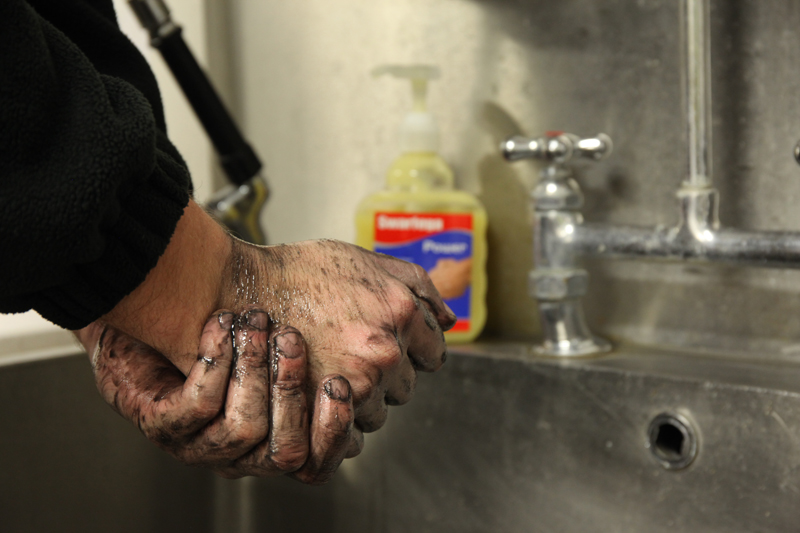
While good skincare can seem like a relatively minor issue for tradespeople, it can have a significant impact on an individual’s physical and mental health later down the line. Swarfega explains more.
It was reported in 2018 that the risk of suicide is 1.6 times higher than the UK average for those in the building trades, according to the Office of National Statistics. Of the number of suicides recorded in the UK, 38% is made up by people working in the trades industry as a whole.
In the trade, mental health and wellbeing is not a topic that is commonly discussed. Workplace mental health, however, is an important issue and something that should be taken seriously by employers and employees alike. Conversations generally around wellbeing have become more common in recent times, with Google searches for ‘mental health’ at an all-time high in October last year – but why is the conversation so important for tradespeople?
Poor mental health has become a real issue in the construction industry. Job insecurity, isolation, demanding hours and a poor work-life balance can all contribute to poor wellbeing, especially for those who are self-employed. The role of employers comes in where people find it more difficult to speak out, for example in older generations. According to the Health and Safety Executive (HSE), the use of routine management skills, a sensitive and supportive approach and speaking out at an early stage are all effective ways to support employees.
An occupational hazard?
Mental health is a difficult issue to combat, but when it comes to self-care, simple changes and approaches can make a huge difference. With personal experience of occupational skin disorders (OSDs), 65-year-old tradesman Geoff explained how one simple change could make a huge impact: “It was so severe that I couldn’t grip. Not being able to make a cup of tea. Not being able to use a knife and fork properly. All these things affect the mental state of someone.”
A familiar sight for those in the plumbing trade are sore, cracked, itchy or swollen hands – just a few of the symptoms of OSDs. Continued contact with unpleasant contaminants and irritants, the use of disposable gloves and tough work in damp conditions means that skin disorders can be particularly common.
They are, in fact, the second most-common work-related health problem in Europe, but they tend to go unreported in most cases, despite the fact that four in 10 workers will experience a skin disorder during their working life. It’s a very serious, but often unseen issue, that can impact both the individual, physically and mentally, as well as the success and efficiency of a business as a whole. In a worst-case scenario, a serious skin disorder could even necessitate a change of career for a plumber.
Geoff added: “It affects you mentally – it’s very demoralising.” Clearly then, the state of physical health can have a significant impact on mental health.
After a series of interviews with tradespeople on this topic, Swarfega concluded that tradespeople needed more information about skin care, in order to have a better understanding of how to combat potential skin disorders. Jason, for instance, commented: “There’s a lot more that could be done. There’s not a lot of information out there.”
Lee, a 27-year-old labourer also said: “The tighter you grip, that tends to be when the most pain comes. I definitely wouldn’t want my children to have the same type of hands that my father has. If you haven’t looked after your hands, you just dread the day.”
Whilst skin care may initially seem like a relatively minor issue when it comes to mental health and wellbeing, small but regular improvements and changes on skin conditions can have a significant impact. As Jason said, more information is needed when it comes to good quality skin care, with Lee adding: “It’s not until later in life, that you find out that these things can actually be pretty detrimental.”
When it comes to making changes around skin care, a three-step approach is recommended by Swarfega. Protection cream before work provides a protective layer and means that the skin is easier to clean. The hands should be washed with an appropriate strength hand cleaner during work, after each contact with a contaminant. Finally, after work, the skin on the hands should be restored with a moisturising cream.
For more information and advice on workplace skin care, email [email protected]













